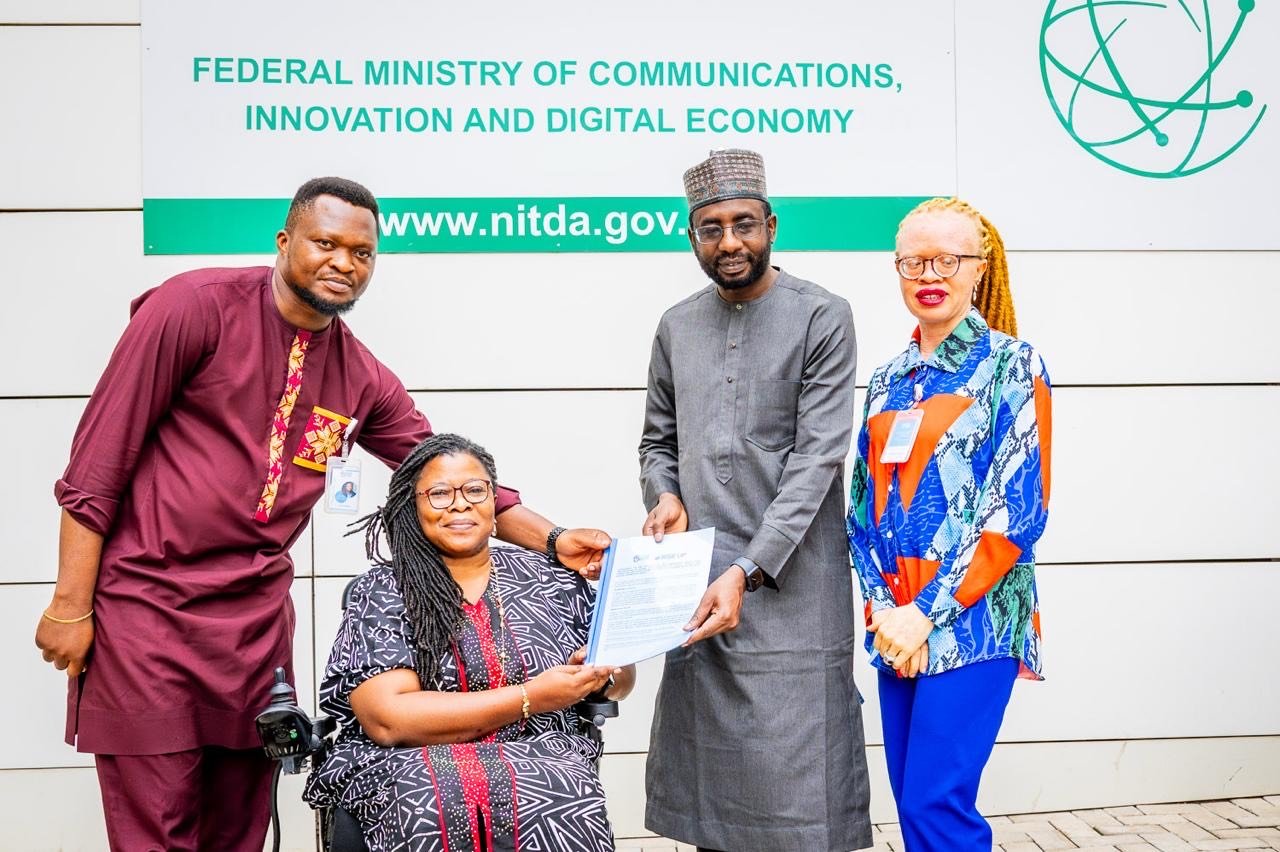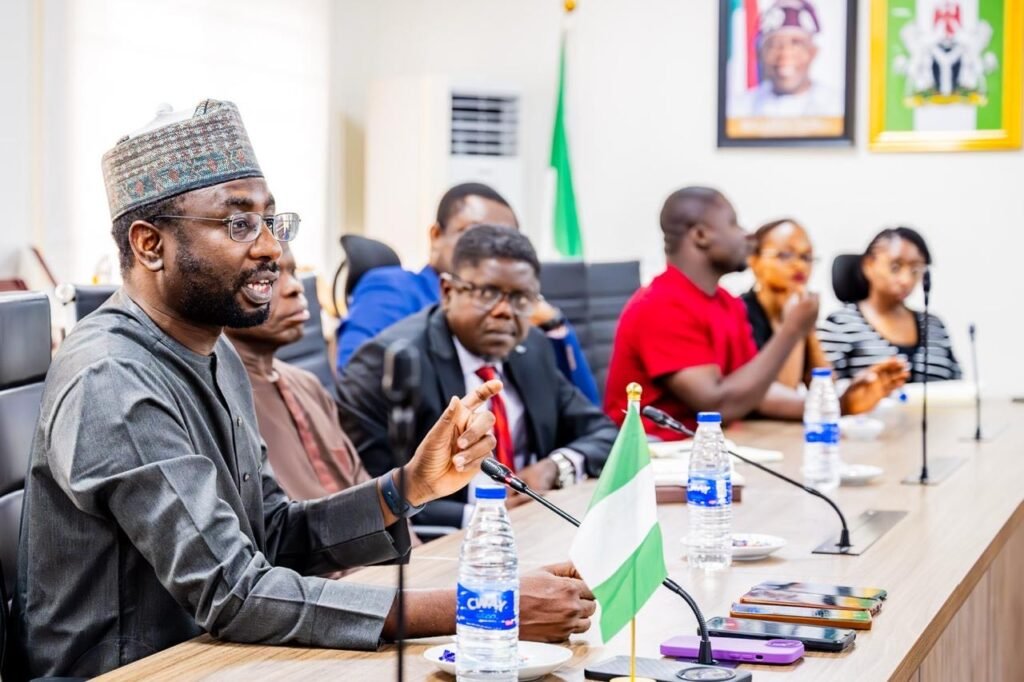The National Information Technology Development Agency (NITDA) has pledged to support inclusive digital programmes that specifically address the needs of persons with disabilities.
The Director-General of NITDA, Kashifu Abdullahi, made the commitment during a stakeholder roundtable discussion with disability rights advocates in Abuja on Wednesday.
Mr Abdullahi acknowledged that previous digital inclusion frameworks did not fully consider the needs of Nigeria’s over 35 million persons with disabilities.
“I never knew that we have up to 35 million people with special needs in Nigeria. So this brought to my attention the need to be more intentional in the way we design our programme,” he said.
“There is no way we can achieve 95 per cent when we exclude 35 million Nigerians.”
He further assured that the commission would represent persons with disabilities in national digital development processes, emphasising that persons with disabilities must also have their own voice in shaping these interventions.

“On the standard, I think we should immediately add them as part of the standard. So we have the commission representing you, but also you need to be there to put your own voice as well.”
Mr Abdullahi admitted that although NITDA had organised trainings for persons with disabilities in the past, many of those initiatives were discontinued after the COVID-19 pandemic.
He encouraged stakeholders to design a capacity-building programme that could commence this year, suggesting models such as “training the trainers” to rapidly expand reach and impact.
He also announced that a committee would be set up to guide inclusive implementation.
This pledge follows a call from the Inclusive Friends Association (IFA), a disability rights organisation advocating for accessible digital policies in Nigeria.
IFA and its partners presented their advocacy efforts under the Rise Up project, which aims to promote inclusive digital development across Nigeria.
Gaps and recommendations
Following NITDA’s commitment to inclusive digital development, officials of the IFA highlighted key recommendations to address gaps in the National Digital Literacy Framework (NDLF 2023), particularly its failure to meet the specific needs of women and girls with disabilities.
Tracy Onabis, Programme Officer of IFA, revealed that over 60 per cent of women with disabilities in Nigeria cannot operate a computer, severely limiting their access to digital jobs and economic independence.
Ms Onabis added that although the federal government aims to achieve 95 per cent digital literacy by 2030, critical gaps remain in the framework that must be addressed to ensure this goal is met inclusively.
In response, IFA put forward a series of recommendations to ensure persons with disabilities are included within the digital literacy agenda.
These include a disability-inclusive review of the NDLF 2023 to adequately reflect the unique digital needs of persons with disabilities.
Additionally, the association advocated for the integration of accessible training formats and assistive technologies, alongside the incorporation of disability-focused budget lines within national digital development plans.
Festus Ope, Research and Legal Lead at IFA, highlighted that although over 113 partners were consulted during the framework’s development, no major disability-focused organisations were involved — including the National Commission for Persons with Disabilities and the Joint National Association of Persons with Disabilities (JONAPWD).
IFA, therefore, called for the specific inclusion of women and girls with disabilities as a priority group for digital training, urging a collaborative implementation approach involving the National Commission for Persons with Disabilities (NCPWD) and Organisations of Persons with Disabilities (OPDs).
READ ALSO: SPECIAL REPORT: Nigerians with albinism dying of skin cancer due to healthcare gaps
The group noted that the recommendations presented are grounded in the communique developed during their October 2024 Consultative Forum and endorsed by over a dozen disability organisations, including NCPWD.
In response to NITDA’s commitment to inclusion, Ms Onabis expressed her gratitude saying; “Thank you very much, Sir. The commitment from your side has further strengthened our effort.”
Read the full article here


